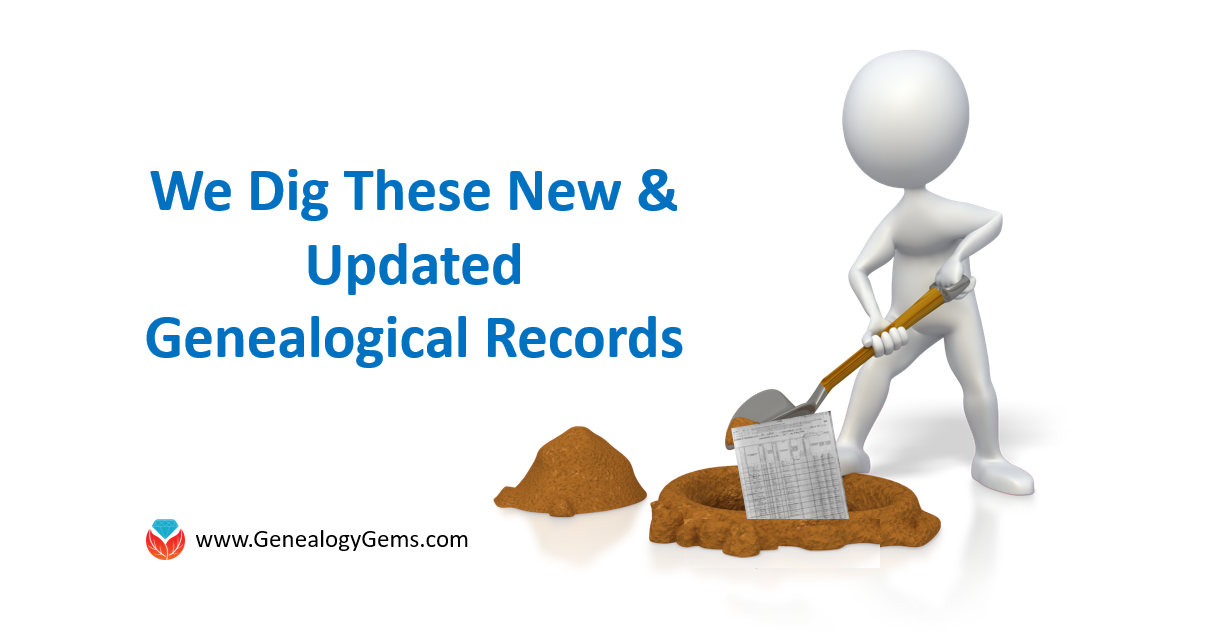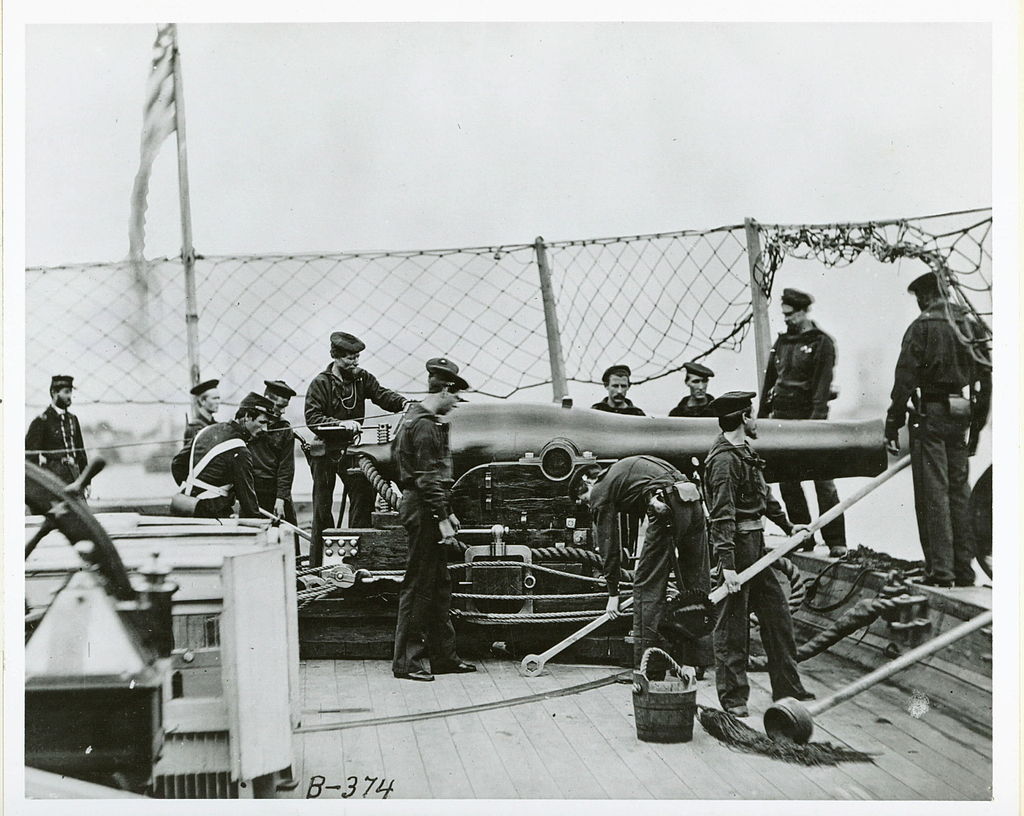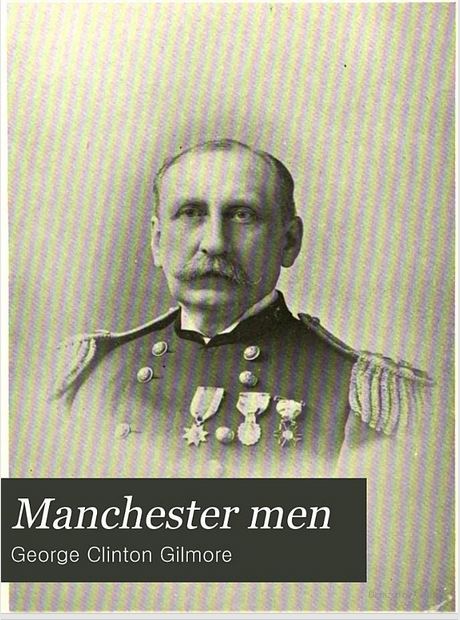by Lisa Cooke | May 1, 2015 | 01 What's New, Ancestry, British, Church, Findmypast, images, MyHeritage, Records & databases
 Every Friday, we highlight new genealogy records online. Scan these posts for content that may include your ancestors. Use these records to inspire your search for similar records elsewhere. Always check our Google tips at the end of each list: they are custom-crafted each week to give YOU one more tool in your genealogy toolbox.
Every Friday, we highlight new genealogy records online. Scan these posts for content that may include your ancestors. Use these records to inspire your search for similar records elsewhere. Always check our Google tips at the end of each list: they are custom-crafted each week to give YOU one more tool in your genealogy toolbox.
This week: British POWs in World War I, North Carolina marriages, and church records for the Evangelical Lutheran Church in America and various denominations in Scotland.
BRITISH POWs IN WWI. Prisoners Of War 1914-1920, with over 43,000 records with images at FindMyPast, consists of “10 series of British Foreign Office documents relating to prisoners held by the Ottomans during World War One. They not only include the names of military personnel taken prisoner–both allied and foreign–but also the names of civilians, merchant seamen, fishermen, diplomatic employees and more.” Some documents “contain the names, ranks and locations of PoWs and provide insights into life in the Ottoman camps. They contain details of requests made by inmates for items including footballs and biscuits, details of visits by foreign diplomats and reports on camp conditions.”
NORTH CAROLINA MARRIAGE RECORDS. Ancestry has a new collection of North Carolina “marriage bonds, licenses, certificates, and registers, as well as indexes and abstracts to the various records from 87 North Carolina counties….Of special interest to African American researchers are records of cohabitation, which were required to be recorded in 1866 in order for the marriages of recently emancipated slaves to be legally recognized.” The records span 1741-2011.
SCOTLAND CHURCH RECORDS. Births, baptisms, banns and marriages, deaths and burials are among a slew of newer records searchable on MyHeritage.com. According to the site, “The records in this collection were taken from Kirk Session material of the Church of Scotland, other Presbyterian churches, and also the registers of the Religious Society of Friends (Quakers). These parish registers cover a wide range of dates (from 17th to 19th century) and many of them are not to be found in any other record source.” Information listed in these records may include names, family relationships, dates and places of events and details of the parish.
U.S. LUTHERAN CHURCH RECORDS. Baptism, confirmation, marriage and burial records from more than 2000 congregations of the Evangelical Lutheran Church of America (1875-1940) are now on Ancestry. These have been available on Archives.com but have migrated to its parent site. “The information…varies from congregation to congregation (and sometimes from minister to minister). In some ethnic congregations, you may run into records in German, Danish, or some other language….Within the collection you may also find membership records, with some listing the names and dates of admission, communion records, and how they were received into the church.”

Google tip of the week: If you see a record collection online but don’t have a subscription to the website that hosts it, Google the name of the database. See whether a free site (like FamilySearch) or another site to which you do have access also hosts the same data set or a similar one. Can’t find it? Click on the description of the record collection (you can generally read the description even if you can’t search the records themselves) and read its source. It may come from a book or a resource that’s been microfilmed–something you can search for on WorldCat and borrow to a library near you. This tip is brought to you by The Genealogist’s Google Toolbox, 2nd edition–fully revised and updated in 2015!
by Lisa Cooke | Aug 19, 2016 | 01 What's New, British, Records & databases |
England emigrants to its U.S. colonies appear in new genealogy records online this week. Also: the 1891 New South Wales census; Czech church, land and school records; English parish records; and U.S. collections from the Freedmen’s Bureau, Marine Corps, Coast Guard and New England towns and cities.

Australia – New South Wales census
Findmypast.com has published over 200,000 records from the 1891 New South Wales census. The census collectors’ books are the source, as these are the only surviving documents. “While they provide less detail than a full census would, they can still be a useful aid to historians and genealogists alike in placing people at a specific moment in time,” states the collection description. “Each result will provide you with a transcript and image of the original collector’s books from the 1891 census. Original images may provide you with additional details, such as the number of individuals living in the same household or the number of residents who were Aboriginal or Chinese.”
Czechoslovakia – Church, Land and School
FamilySearch.org has added to its collection of Czech Republic Church Records spanning more than 400 years (1552-1963). You’ll find “images and some indexes of baptisms/births, marriages, and deaths that occurred in the Roman Catholic, Evangelical Lutheran, and Reformed Church parishes, as well as entries in those registers for Jews.” These are taken from parish registers and synagogue records now in regional archives. Though not fully indexed, the browse-only records number over 4 million! (Click here to learn how to use browse-only collections on FamilySearch.org; remember you can use the FamilySearch wiki for help in translating records in another language.)
FamilySearch has also added more than 850,000 browsable images to its existing collection of Czech Republic Land Records 1450-1889 and more than a million browsable images to the existing collection Czech Republic School Registers 1799-1953.
England Emigrants
Remember recently when we blogged about emigrant records, or those created about people leaving a country? Ancestry.com recently posted a new database called Emigrants in Bondage, which it says is “the most important list of ships’ passengers to be published in years.” Indexed are names of “more than 50,000 English men, women, and children… sentenced to be deported to the American colonies for crimes ranging from the theft of a handkerchief to bigamy or highway robbery.” The collection dates cover 1614 to 1775, after which time the British empire was not permitted to ship its “undesirables” to U.S. shores.
England – Parish records – Staffordshire and Sussex
Findmypast has added to its collections of church vital records for Staffordshire, England. Its browsable parish registers, 1538-1900 now includes 300,000 full-color page-by-page images. Separate databases of baptisms, wedding banns, marriages and burials have also been updated.
Also, more than 1.2 million indexed records have been added to FamilySearch’s collection of England, Sussex, Parish Records, dating 1538-1910. Sussex parish registers contain baptisms, marriages/banns, and burials. Date ranges of available records vary by locality; you will want to use the coverage table at the FamilySearch wiki to see what’s available.
U.S. – Freedmen’s Bureau Records
Now that the Freedmen’s Bureau collections have been fully indexed, FamilySearch is dumping them onto its website in batches. This week, they added these new databases:
U.S. – Military
FamilySearch.org has added just over 4 million indexed records to its database of United States Muster Rolls of the Marine Corps (1798-1937). The collection is described as an “index and images of muster rolls of the United States Marine Corps located at the National Archives. The records are arranged chronologically by month, then by post, station or ship.”
This week, the Fold3.com blog reminds us of its Coast Guard collections, in honor of the Coast Guard’s 226th birthday. Hundreds of thousands of search results on the site relate to Coast Guard history, from disapproved Navy survivors pension files to photos dating to the Civil War; accounts of shipwrecks or accidents, WWII war diaries for several units, images of insignia and Navy cruise books.
U.S. – New England
FamilySearch has posted a new index of New Hampshire Vital and Town Records Index for the years 1656-1938. It contains shy of half a million records of births, marriages and deaths. Entries were sourced from multiple archives in New Hampshire; the citation for each record is included in the index entry at the bottom of the record screen.
The New England Historic Genealogical Society has announced improvements to its databases for three New England cities, which now include more searchable fields and images. “Hartford, CT: General Index of Land Records of the Town of Hartford, 1639-1839, is now searchable by grantee and grantor name, and results provide the record type and volume and page of the record (available on microfilm at the Connecticut State Library). Boston, MA: Births, 1800-1849, and Dover, NH: Vital Records, 1649-1892, are now searchable by first name, last name, record type, family member names, date, and location.”
by Lisa Cooke | May 23, 2015 | 01 What's New, African-American, images, Listeners & Readers, Military, Records & databases, United States, Volunteer

Dahlgren gun on a Civil War ship (Photo Public Domain)
Recently Tom wrote in with a question about a Civil War veterans database:
“I’ve been a listener of your podcast for quite a long time. Great job.
“We have a grass-roots group trying to locate and document Civil War Veterans buried in Washington state. Is there a good website where I can enter a name and unit identification and get results of the person’s [Civil War] service? I’m having a really hard time finding US Navy sailors.”
It sounds like Tom is conducting a very worthwhile project! (We added the link above to the website for the project, in case you’re interested.) An excellent resource–still in progress for sailors with only about 20% of them–is The Civil War Soldiers and Sailors System (CWSS).
The site describes its resources as a “database containing information about the men who served in the Union and Confederate armies during the Civil War. Other information on the site includes histories of Union and Confederate regiments, links to descriptions of significant battles, and selected lists of prisoner-of-war records and cemetery records, which will be amended over time.”
This is an excellent resource for soldiers. As far as sailors go: “The Civil War Soldiers and Sailors System currently contains the records of approximately 18,000 African American sailors, though additional records will be added in the future. The information in the Sailors Database is derived from enlistment records and the quarterly muster rolls of Navy vessels. Approximately half of the sailors entered the service at the Navy’s established points of enlistment. For these men and women, enlistment records serve as the primary sources of information. The Howard University research team used muster rolls to fill in missing data or to correct apparent misinformation recorded at the time of enlistment. Information about the remainder of the enlistees was derived directly from these muster rolls. When research uncovered inconsistencies in the data (such as conflicting reports of an individual’s age at the time of enlistment) the most frequently recorded response was used.”
“Descendants of Civil War sailors will find biographical details regarding age, place of birth, and occupation that may help supplement or clarify details from such other sources of genealogical information as birth, death, and census records. Moreover, information about any individual sailor’s enlistment and service is necessary for determining the presence or absence of their pension records at the National Archives.” Click here to read an article from the National Archives about African-American servicemen in the Navy in the Civil War. I covered the Civil War Soldiers and Sailors database in the free Genealogy Gems Podcast Episode 149. Be sure to check out the show notes page (click the link I’ve provided.) There you’ll find the information written out for you and the links I discuss in the episode.

Manchester Men available free at Google Books
If a Navy ancestor isn’t among those already listed, my first instinct is always to turn to Google searches first. I ran a search in Google Books for free (fully digitized) books meeting the criteria “civil war” “sailors” and there are some resources there as well. Here’s a link to the search results. One example is the book shown here to the left: Manchester Men, which appears to be a published list of those who served from Manchester, N.H. (click on the book cover to read it in Google Books). Learn more about Google searching for “niche” topics like this in the fully-revised and updated edition of my book, The Genealogist’s Google Toolbox.
 Every Friday, we highlight new genealogy records online. Scan these posts for content that may include your ancestors. Use these records to inspire your search for similar records elsewhere. Always check our Google tips at the end of each list: they are custom-crafted each week to give YOU one more tool in your genealogy toolbox.
Every Friday, we highlight new genealogy records online. Scan these posts for content that may include your ancestors. Use these records to inspire your search for similar records elsewhere. Always check our Google tips at the end of each list: they are custom-crafted each week to give YOU one more tool in your genealogy toolbox.



